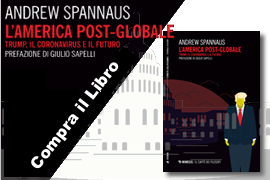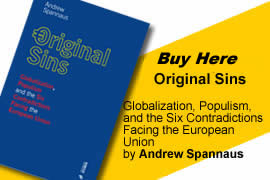– by Hedley Myers –
Between the opening and closing of polls in Canada on October 21st, the status quo of Canadian politics was mostly upheld, but with the rumblings of a new populist era present. Long a champion of liberal values and a proponent of a more globalised world, incumbent Prime Minister Justin Trudeau saw his parliamentary caucus and popular vote share shrink, with the end of his outright majority in Canada’s House of Commons, but he retained a significant plurality, falling only thirteen seats short of majority status. In contrast, the Conservatives, led by Andrew Scheer, a traditional centre-right Tory, failed to gain the widespread support required to form a government. Canada’s historic third party, the social-democratic New Democrats, led by Jagmeet Singh, a newcomer to federal politics, experienced a subpar election winning only twenty-four seats. A resurgent nationalistic Bloc Québécois, under the leadership of Yves-François Blanchet, saw its seat count more than triple, and Maxime Bernier’s People’s Party, a new populist anti-globalist party formed in the mold of its European counterparts, failed to gain any widespread support, winning a total of zero seats.
While at first glance it appears the global populist wave skipped over Canada, the reality is that this election was less a rejection of it and more a possible beginning. Canada’s response to globalization differs from that of the rest of the West. While populists in most Western democracies have turned toward a unifying vision of a post-global national identity, with identitarian blanket nationalism serving as a panacea for society’s ills, the solutions presented in Canada have been far more regional. That kind of unifying national backlash just cannot materialize given Canada’s historical political context. Unlike European countries or the United States to a certain extent, Canada has never been a unified nation-state. Its inception was as a plurinational country resulting from a history of conquest that allowed its conquered subjects to retain their unique language and culture prior to its rather late “national” founding in 1867. In the past 150 years, there have been notable efforts at nation-building, but these attempts have not been as successful as in other post-colonial states given the distinct regional character of Canadian society. The last major push towards nation-building during the late twentieth century, involving large-scale constitutional overhaul and reform, resulting in the final separation of the Canadian and British legal systems, exacerbated regional tensions in the West and Quebec, and shook the Canadian political order.
A return to Canada’s old populist tendencies of Western Alienation and Quebec Nationalism is back, but in a different form. Last century, Western Canadians were angry at perceived federal intrusion into the West’s energy sector during the tenure of Liberal Prime Minister Pierre Trudeau, eventually forming their own political organization, the Reform Party, to advocate for Western interests at the federal level. Today, disputes over pipeline construction dominate the political discourse of Western Canada, as oil is still the foundational bedrock of Western Canada’s economy. In an era of increasing international backlash against and divestment from fossil fuels, coupled with a regional recession, Western Canada is facing increasing economic and financial uncertainty, with the worry of permanent economic decline looming in the minds of the Western electorate. Voting against the international consensus of the supposed danger of climate change, the West did not vote for a European-style populist party, but instead chose to deliver the core block of Conservative support, with all but one of Alberta and Saskatchewan’s forty-eight seats delivered to the Tories, many by enormous margins. Feeding off a Western Canada dissatisfied with Justin Trudeau’s modest pipeline development policy, environmental rhetoric, and perceived focus on Eastern issues, the Conservatives (who are the direct political successors to the Reform Party) were able to appeal to this resurgent feeling of Western Alienation by promising a more aggressive pipeline expansion program and a rejection of climate change as a dire and pressing concern.
However, it is unknown if this will be enough to stave off any new feelings of Western Alienation. Talk of a “Wexit” before election day has grown to new heights after dominating recent news headlines. Wexit Canada, a major group involved in pushing this new separatist rhetoric, recently applied to become a registered federal political party. This is contrary to the intent of the old Reform Party, which sought an increased voice for the West at the federal table; Wexit simply wants a new table for the West instead.
In Quebec, the reverse has occurred. At the same time Western Alienation sought a larger voice for the West, newfound Quebec nationalism culminated in separatism and two divisive independence referenda. Remedial solutions were devised, staving off the disintegration of Canada. This fall, the Bloc ran on a campaign of increased autonomy and more power for Quebec but notably fell short of calling for its traditional position of outright sovereignty and complete political independence from Canada. This heterodox (by Bloc standards) but incredibly successful campaign strategy delivered an election victory by focusing on national identity, with the slogan of “Quebec is us” (Le Québec, c’est nous). Allying itself with the province’s right-wing populist-conservative government, which has pushed a more ethnically and culturally restrictive notion of what it means to be Québécois or Québécoise, the Bloc carved significant inroads into Quebec, winning back most of its traditional strongholds, not by relying on an economic message, but rather on a cultural populist message. Long considered a dead political force, its new promotion of an increased role for Quebec that is reliant on cultural identity has been incredibly successful. Its strategy has been the opposite of Western Canada’s. Originally dependent on a position of full political independence, it has instead settled into one of desiring more power for Quebec within the existing federal framework.
The divisions and fractures in Canadian political society currently exist in an increasing manner that is feeding into populist thought, but not in an organized manner as seen in other parts of the West. How severe these developments become during the next few years depends on the Liberals. Trudeau has refused to form a coalition with the New Democrats, instead preferring to run a more traditional minority government. His hope is to work with the other parties on a case-by-case basis without being pigeonholed into an ideological left-wing corner. He has already shown his willingness to work with the Conservatives to construct a key oil pipeline through Western Canada in an attempt to alleviate the fears of Western Canadians. How successful this strategy is at addressing Canada’s structural problems remains to be seen, but if successful it could alleviate regional tensions and stave off a more concerted and destructive populist effort in Canada.







November 7, 2019
English, Politica